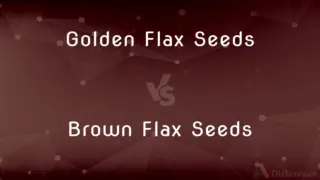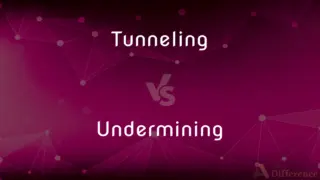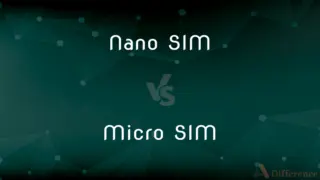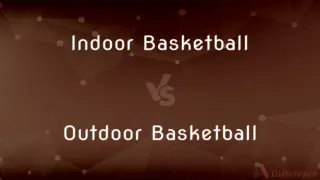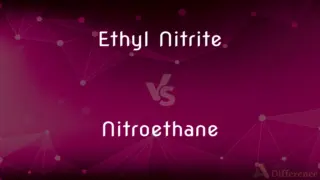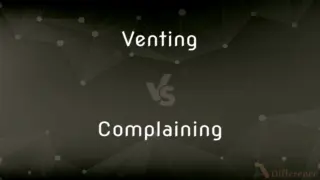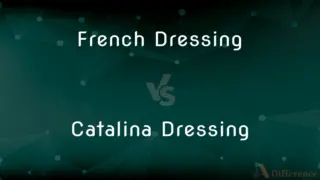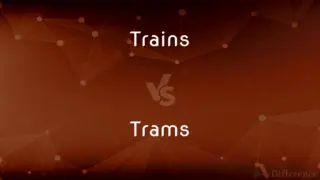Annotate vs. Notate — What's the Difference?
By Tayyaba Rehman — Updated on September 25, 2023
"Annotate" means adding explanatory notes to a text; "Notate" involves writing down music or information using symbols. They differ in purpose and context of use.

Difference Between Annotate and Notate
Table of Contents
ADVERTISEMENT
Key Differences
"Annotate" and "Notate" are both verbs, but they have distinct meanings and are used in different contexts. To "Annotate" means to add notes, comments, or explanations to a text, typically to clarify or expand on certain points. Annotating is commonly used in literary analysis, research, and studying, where there is a need to delve deeper into the context or meaning of the written word. It aids in comprehension and interpretation of textual content, allowing a richer understanding of the material.
"Notate," on the other hand, generally means to write down information using symbols, typically in the context of music notation. When one notates music, they are translating sound into written form, utilizing musical symbols to represent pitch, rhythm, tempo, and other musical elements. This process enables the replication and study of musical pieces, allowing for musical ideas to be communicated and preserved.
While "Annotate" is primarily associated with adding explanatory notes to textual content, "Notate" is more universally applied to the representation of information, often musical, through symbols. Annotating primarily serves to enhance understanding of text by offering additional insights, clarifications, or explanations, whereas notating serves to codify information, such as music, enabling its interpretation and reproduction.
In summary, "Annotate" pertains to augmenting text with supplementary notes or comments to clarify or elucidate, enriching the reader's comprehension of the material. "Notate" refers to the act of recording information, especially music, using a system of symbols, allowing for the conveyance and preservation of that information.
Comparison Chart
Primary Purpose
To add explanatory notes to a text.
To record information using symbols.
ADVERTISEMENT
Context of Use
Primarily in literary analysis and research.
Often used in the context of music notation.
Representation
Involves words and phrases.
Involves symbols.
Objective
To clarify or expand on certain points in a text.
To enable replication and study of information, typically music.
Example
Annotating a book to understand the author's intent.
Notating a musical piece to study its structure.
Compare with Definitions
Annotate
To add explanatory notes or comments to a text.
Researchers often annotate articles to clarify complex ideas.
Notate
To represent by a system or set of marks, signs, figures, or characters.
Musicians notate rhythm using a series of symbols.
Annotate
To add notes or remarks on a text to explain or comment on it.
It's helpful to annotate academic texts to better understand the main points.
Notate
To use symbols or abbreviations to represent something.
The student had to notate the chemical reaction accurately.
Annotate
To provide with explanatory or interpretative notes.
To understand the historical context, she had to annotate the manuscript meticulously.
Notate
To write down using symbols or notes.
The composer will notate the melody to ensure its preservation.
Annotate
To supply with critical or explanatory notes.
He had to annotate the report to make it understandable to the layperson.
Notate
To record information in written form using a special system.
The scientist had to notate the findings precisely for future reference.
Annotate
To furnish (a literary work) with critical commentary or explanatory notes; gloss.
Notate
To put into notation.
Annotate
To gloss a text.
Notate
To mark with spots or lines, which are often colored.
Annotate
(transitive) To add annotation to.
Notate
To add notes to; to annotate
Annotate
To explain or criticize by notes; as, to annotate the works of Bacon.
Notate
To create notation (e.g. music or mathematics); to record/put down in the form of notation
Annotate
To make notes or comments; - with on or upon.
Notate
(botany) Marked with coloured spots or lines.
Annotate
Add explanatory notes to or supply with critical comments;
The scholar annotated the early edition of a famous novel
Notate
Marked with spots or lines, which are often colored.
Annotate
Provide interlinear explanations for words or phrases;
He annotated on what his teacher had written
Notate
Put into notation, as of music or choreography;
Nowadays, you can notate an entire ballet; in the old days, the steps had to be memorized
Annotate
To make or furnish critical or explanatory notes or comments.
The teacher asked the students to annotate the poem for homework.
Notate
To set down in or furnish with musical or choreographic notation.
Choreographers notate dance movements to teach them to performers.
Common Curiosities
Can "Notate" be used in scientific contexts?
Yes, "Notate" can be used to record scientific information using specific symbols or notation systems.
Can "Annotate" be used when adding notes to a book?
Yes, annotating is often used to add explanatory notes to a book to clarify or explain certain points.
Is "Notate" primarily used for music?
Yes, "Notate" is often used to record music using symbols, but it can also be used in other contexts where information is recorded using a system of symbols.
Can "Notate" involve the use of abbreviations?
Yes, "Notate" can involve using abbreviations or other symbols to represent information succinctly.
Is annotating useful for studying?
Absolutely, annotating texts can aid in comprehension and retention of information, making it a valuable study tool.
Is "Annotate" used to elaborate on textual content?
Yes, to annotate is to elaborate on or clarify textual content by adding supplementary notes or comments.
Can "Notate" be used to represent mathematical information?
Yes, mathematical information can be notated using numbers, symbols, and mathematical notation.
Does "Annotate" only involve adding written notes?
Typically yes, to annotate primarily means to add written notes or comments to clarify or expand upon text, but it can also involve adding symbols or diagrams.
Does "Annotate" imply adding additional insights to a text?
Yes, annotating often involves providing additional insights, explanations, or clarifications to a text.
Can one notate dance movements?
Yes, dance movements can be notated using specific notation systems to represent choreography.
Does "Notate" imply recording information accurately?
Absolutely, to notate requires the accurate recording of information using an appropriate system of symbols or notation.
Can annotating be used to explain complex ideas in a text?
Yes, annotating is often used to explain and clarify complex ideas found in a text.
Is the purpose of annotating to enrich the reader's understanding of the text?
Yes, the primary purpose of annotating is to enrich the reader's understanding and interpretation of the text.
Can "Notate" include the use of characters to represent information?
Yes, notating can include the use of characters, marks, or other symbols to accurately represent information.
Can "Annotate" and "Notate" be used interchangeably?
No, while both involve adding to existing content, "Annotate" typically refers to adding explanatory notes to text, and "Notate" involves recording information using a system of symbols, often in musical contexts.
Share Your Discovery

Previous Comparison
Valley vs. Plateau
Next Comparison
Parallel vs. PerpendicularAuthor Spotlight
Written by
Tayyaba RehmanTayyaba Rehman is a distinguished writer, currently serving as a primary contributor to askdifference.com. As a researcher in semantics and etymology, Tayyaba's passion for the complexity of languages and their distinctions has found a perfect home on the platform. Tayyaba delves into the intricacies of language, distinguishing between commonly confused words and phrases, thereby providing clarity for readers worldwide.














